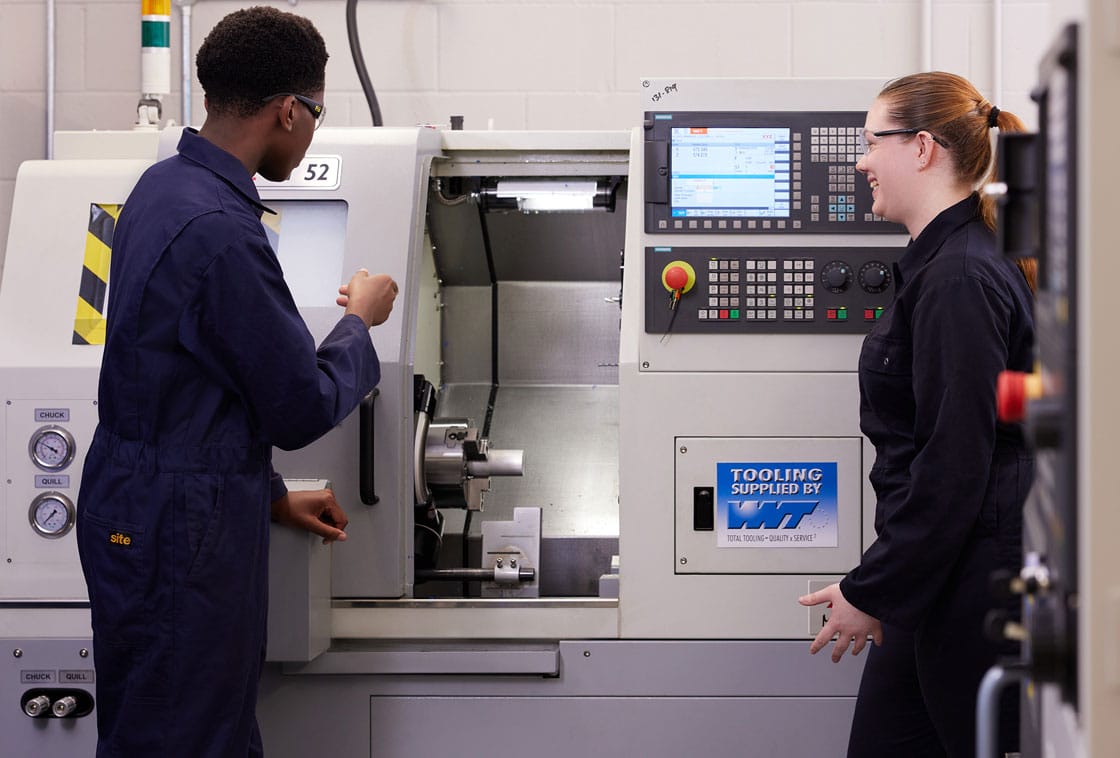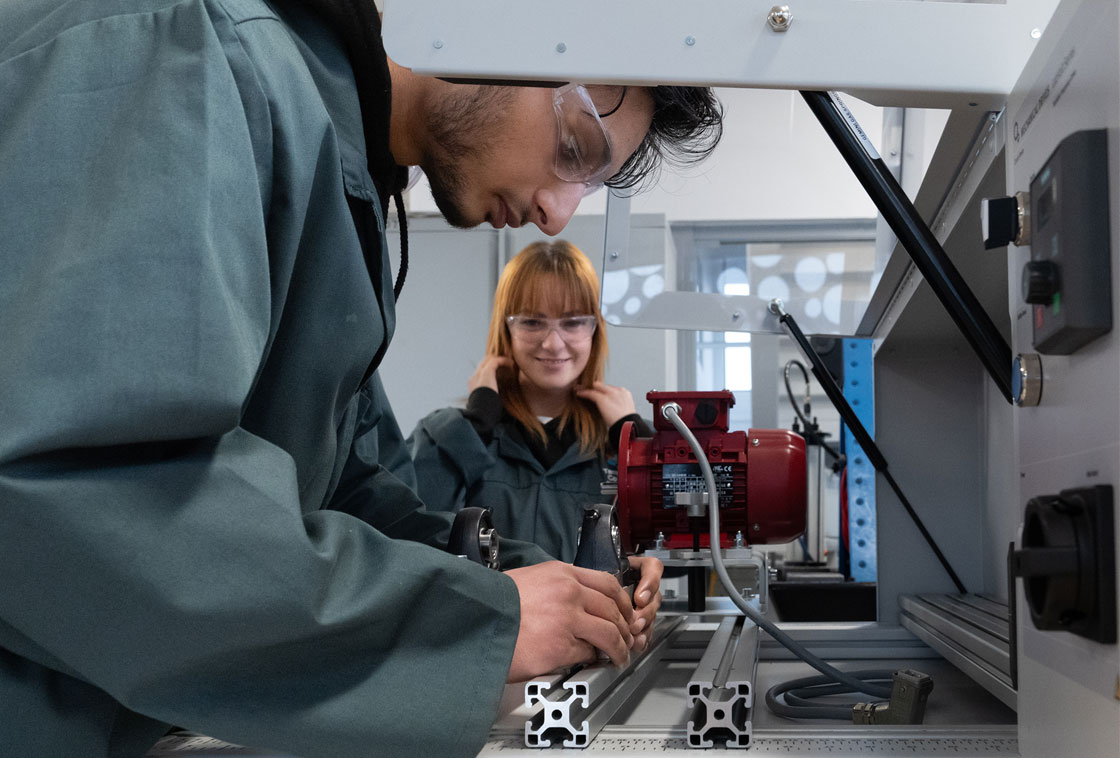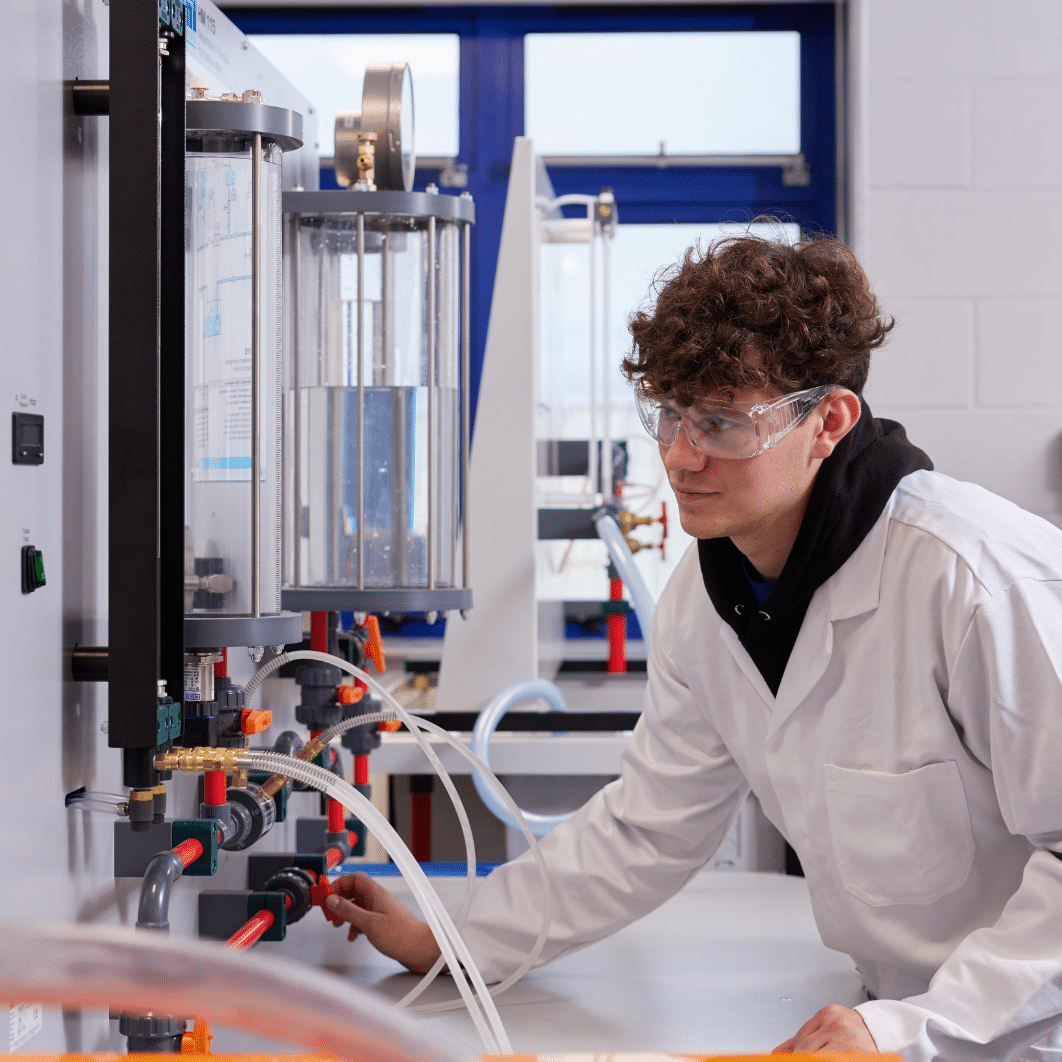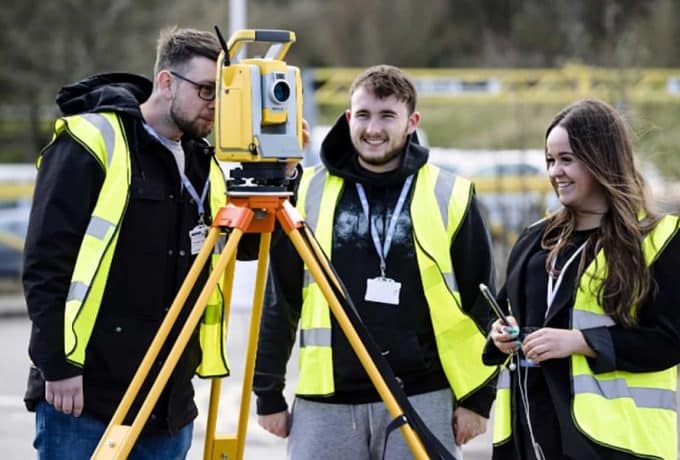
Advanced Engineering and Manufacturing
Advanced Engineering and Manufacturing Engineers are the drivers of modern life undertaking the research, design, construction and managing of infrastructures all around us.
Greater Manchester’s manufacturing industry employs 110,000 people across more than 6,000 businesses, generating £8bn of economic output each year.
Manufactures are facing the largest shortage of skilled workers since 1989. Locally, skills gaps are in several technical areas, including digitalisation (trends towards industry 4.0), advanced materials, automation and management skills.

Common tasks in this industry
- Innovation & sustainabilty: develop, implement and oversee sustainability strategies/initiatives
- Research: Use mathematical modelling to research new developments and innovations
- Digital: Turn research ideas into technical plans, using computer aided design/modelling (CAD/CAM)
- Collaboration: Manage and lead a project team of technicians, designers and other engineering professionals
- Quality control: Run regular inspections and safety checks
- Planning: Estimate costs and project timings

Routes of entry
- Level 4 or 5 qualifications – HNCs and HNDs or Foundation Degree
- Higher apprenticeships (Level 4 and 5)
- Degree apprenticeships
- An accredited university degree or equivalent qualification
- Membership of a chartered engineering institution is attainable after qualifying and periods of training and experience
- You can become an incorporated engineer with an accredited university degree, BTEC/SQA Award or an apprenticeship leading to an NVQ/SVQ at Level 4 after periods of appropriate training and relevant experience.
- Toby Rutter, HND Mechanical Engineering at Wigan & Leigh College“I chose the higher technical apprenticeship route because the work experience you gain alongside the industry-recognised qualifications is priceless.”


